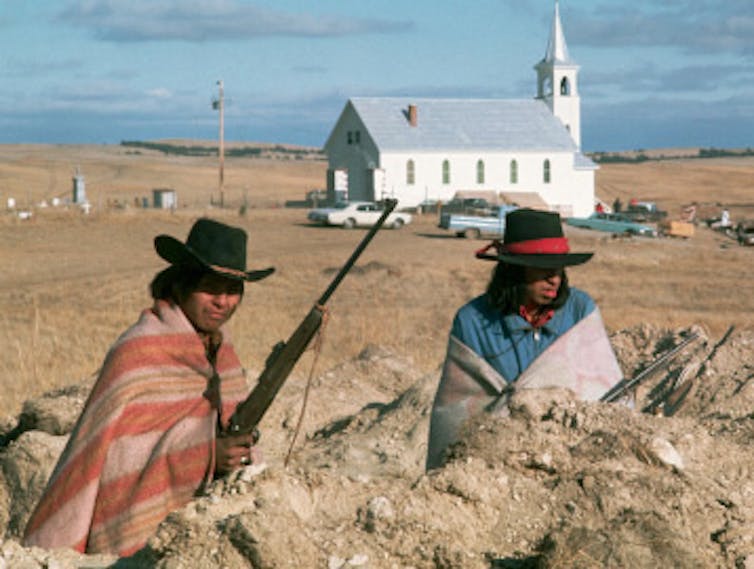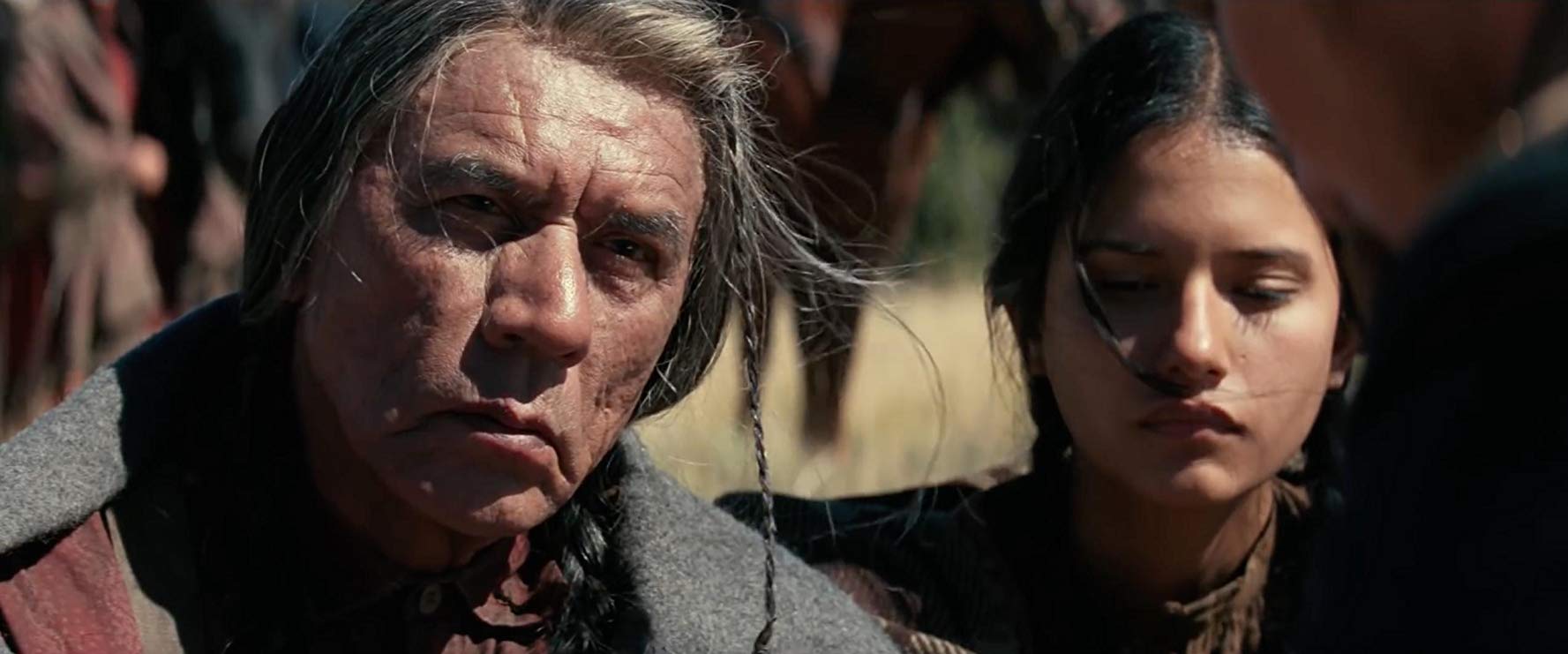Joy Porter, University of Hull
Change comes stepping slow, but it does come. Cherokee actor Wes Studi will make Oscar history in October 2019 by receiving an Academy of Motion Pictures honorary award, alongside directors David Lynch and Lina Wertmüller and actress and feminist advocate, Geena Davis.
Studi starred in Hostiles (2017), Geronimo: An American Legend (1993), The Last of the Mohicans (1992), Dances With Wolves (1990) and featured in Heat (1995), Mystery Men (1999) and Avatar (2009). He previously made Oscar history of another kind by giving a tribute to military movies and the US armed forces at the 90th Oscars in 2017.
A Vietnam veteran, Studi spoke in Tsalagi – his people’s language, also often referred to as Cherokee – and provocatively challenged his liberal audience in English by declaring: “I’m proud to have served there for 12 months with Alpha company of the 29th Infantry,” and asking: “Anyone else?”
Studi’s award comes in the wake of a lacklustre 2018 Academy Awards ceremony, where the agenda for diversity seemed to have stalled and only six out of 33 winners were female – despite the drumbeat for change from groups such as #OscarsSoWhite, #MeToo, and #TimesUp. His award is for “portraying strong Native American characters with poignancy and authenticity”.
Read more:
The Oscars: inclusivity riders are a start but change needs to come from the ground up
Studi is known for playing grimly stoic, implacable killers – something more representative of the roles on offer to Native American actors rather than of the actor himself, who is known for being funny and a multilingual, erudite translator and writer.
‘It’s been a long time coming’
Rather than marking a shift within Hollywood, away from stereotype and towards realistic portrayal of the diversity of Native American life, then, Studi’s award speaks more to the importance of hard work and dedication. Although his career did not take off until his 30s, Studi, at 71, has more than 100 film and TV credits and has always been realistic about what drives an industry that generally reflects rather than drives change in society. “At times, you’re welcome,” as he explained in a recent NPR interview, “depending on what’s being cast”.
That said, Studi’s accolade is meaningful as a marker of distance travelled in terms of intercultural relations. Studi was politically active after Vietnam. He participated in the Trail of Broken Treaties protest march in 1972 that occupied the Bureau of Indian Affairs, and in the Wounded Knee protest at Pine Ridge Reservation in 1973, which demanded the US government reopen treaty negotiations and address corruption and intimidation there.
After a heavily-armed stand off, it culminated in a series of deaths, a prelude to the murder two years later of two FBI agents at Pine Ridge, a crime for which the Turtle Mountain Chippewa, Leonard Peltier, remains in prison despite repeated appeals and requests for presidential clemency.

Still from PBS documentary.
Studi’s award comes some 46 years after Marlon Brando notoriously refused to accept his Best Actor Oscar at the 45th Academy Awards for his performance in The Godfather, and instead sent a part Yaqui-White Mountain Apache actress called Sacheen Littlefeather to give a speech dressed in buckskin. Brando and Littlefeather used the Oscars to protest about what was happening at Wounded Knee, against broken treaties and against the anti-Indian racism that is still prevalent today.
For both people, the protest was far from trivial. Brando had been an activist within the American Indian Movement since the 1960s. Littlefeather, who had adopted her name and learned about the Indian side of her heritage during her involvement in the 1969 occupation of Alcatraz by Native protesters, was shot at with Brando after the ceremony at his home and subsequently threatened and blacklisted as an actor.
She continued as an activist and producer, however, and remains a respected elder within her community in California today.
Prior to the Brando protest, the academy had nominated Chief Dan George in 1970 for his performance in Little Big Man. Then, in 1982, Canadian Buffy St Marie won a Best Music, Original Song Oscar for Up Where We Belong in the film An Officer and a Gentleman. Then there was a long interlude until filmmaker Joanelle Romero was shortlisted in 2000 for the documentary: American Holocaust: When It’s All Over I’ll Still Be An Indian.
Making progress
Studi’s recognition in no way redresses this imbalance in terms of academy recognition of Native American creative ability – but it can be linked to larger processes of change for American Indians. As a recent Harvard study showed, reservations have been growing at three times the rate of the US economy as a whole and the number of Native American students enrolled for degrees has doubled in the past 20 years. Meanwhile, the shocking statistics for the health of Native Americans are on a downward trajectory and their leaders are using a new language of responsibility, accountability, entrepreneurship and potential.
Unprecedented numbers of Native Americans ran for public office in 2018 and notched up wins in an array of federal, state and local races. A record number were female. Added to this, Native Americans are significantly younger than the average American and their numbers are rising fast – more than 5m identify as American Indian or Alaskan Native and around 78% are living off reservation.
Despite this, Studi has few illusions and a keen awareness that indigenous resurgence is a long game: “I’m a Cherokee first and an American later,” he told Entertainment Weekly in 1993. “While I may forgive, I will never forget – and I will pass that feeling on to my own kids.”![]()
Joy Porter, Professor of Indigenous History, University of Hull
This article is republished from The Conversation under a Creative Commons license. Read the original article.
